We saw that when D.W. Griffith brought Shakespeare to the big screen, he took great liberties with the plot, and by great liberties I mean he more or less threw it out the window, but his take on The Taming of the Shrew is downright canon compared to what Romeo Bosetti has done with Romeo and Juliet in the 1909 short film Romeo Turns Bandit. Griffith at least kept the basic concept of the story intact, and presented the action as taking place in 1500s Padua. Bosetti not only ignores the entire plot of the source material, he sets it in the modern day America. The action here is definitely not happening in fourteenth century Verona. About the only thing kept from the Bard’s play are the names.
Romeo wants to marry Juliet, but Mr. Montagu, her father, says no. Romeo rounds up some friends, they grab guns and don masks, and they throw a bag over Mr. Montagu and tie him up. Romeo next meets up with Juliet, who is clearly in on his scheme, and steals her away from her home. Mr. Montagu is then untied, and finds a ransom note at his feet that informs him Juliet has been kidnapped, and will be held until $1,000 is paid. Who does Mr. Montagu meet on his way home? Romeo, to whom he shows the ransom note. Romeo races off to “rescue” Juliet, and after he brings her home, is given Mr. Montagu’s blessing to marry his daughter. Romeo and Juliet get the happy ending they’ve always deserved!
Like the last film I watched, The Country Doctor, Romeo Turns Bandit uses title cards to keep the audience in tune with the plot. Nothing else struck me as noteworthy about the film on a technical level. The film stars Max Linder, one of film’s earliest comedy stars. His name isn’t well-known today, but he paved the way for some of the big names we do remember. He is considered responsible for the creation of the classic style of silent slapstick comedy employed by actors like Buster Keaton, Charlie Chaplin, and Harold Lloyd.
Linder created the character of Max, a top-hatted dandy who appeared in well over 100 films. This character became incredibly popular, and Linder became the highest-paid actor in the world, commanding a then staggering salary of one million francs in 1912. He continued to make movies up until his death, with some of his final films being considered his best. In 1925, at age 41, he killed himself in a suicide pact with his wife.
Rather than ending on that down note, let me share with you where you can find this film, which was originally released on November 19th, 1909. I have it on a DVD for Othello, another silent film adaptation of Shakespeare, where it is an extra along with The Taming of the Shrew. You can click the picture of the DVD below if you’d like to buy a copy of your own.
Next I’m watching: Dante’s Inferno [1911], directed by Francesco Bertolini, Adolfo Padovan, and Giuseppe de Liguoro.







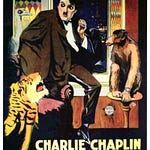
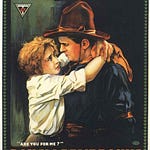
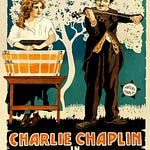


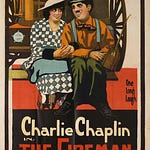

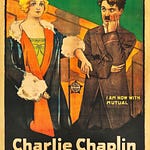
Share this post